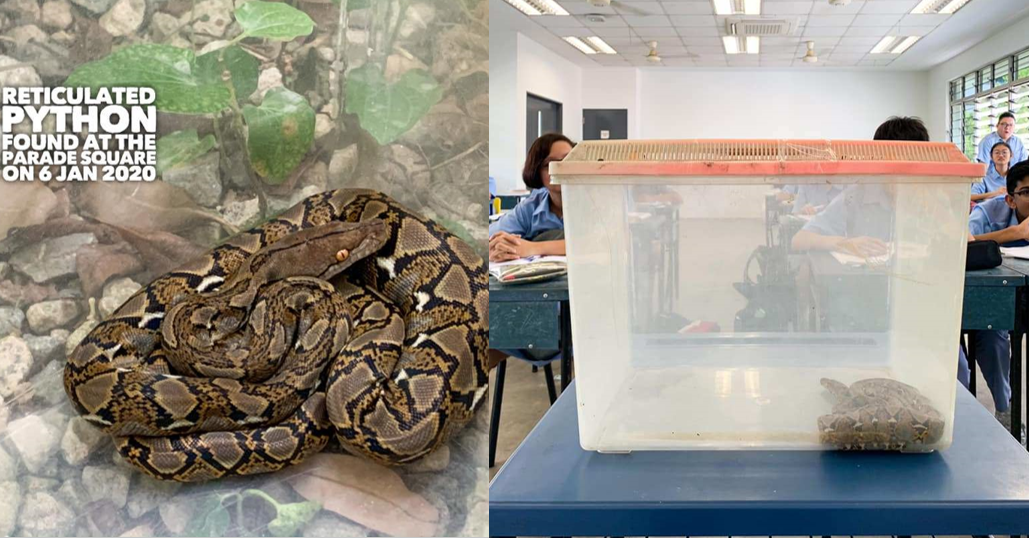Most people might be rather alarmed if they found a snake in their school.
For one teacher Jacob Tan, however, he calmly turned the situation into a science lesson instead.
Reticulated python in school
According to his post on Facebook, a small reticulated python was spotted on the metal shelter along the corridor in Commonwealth Secondary School on Jan. 6.
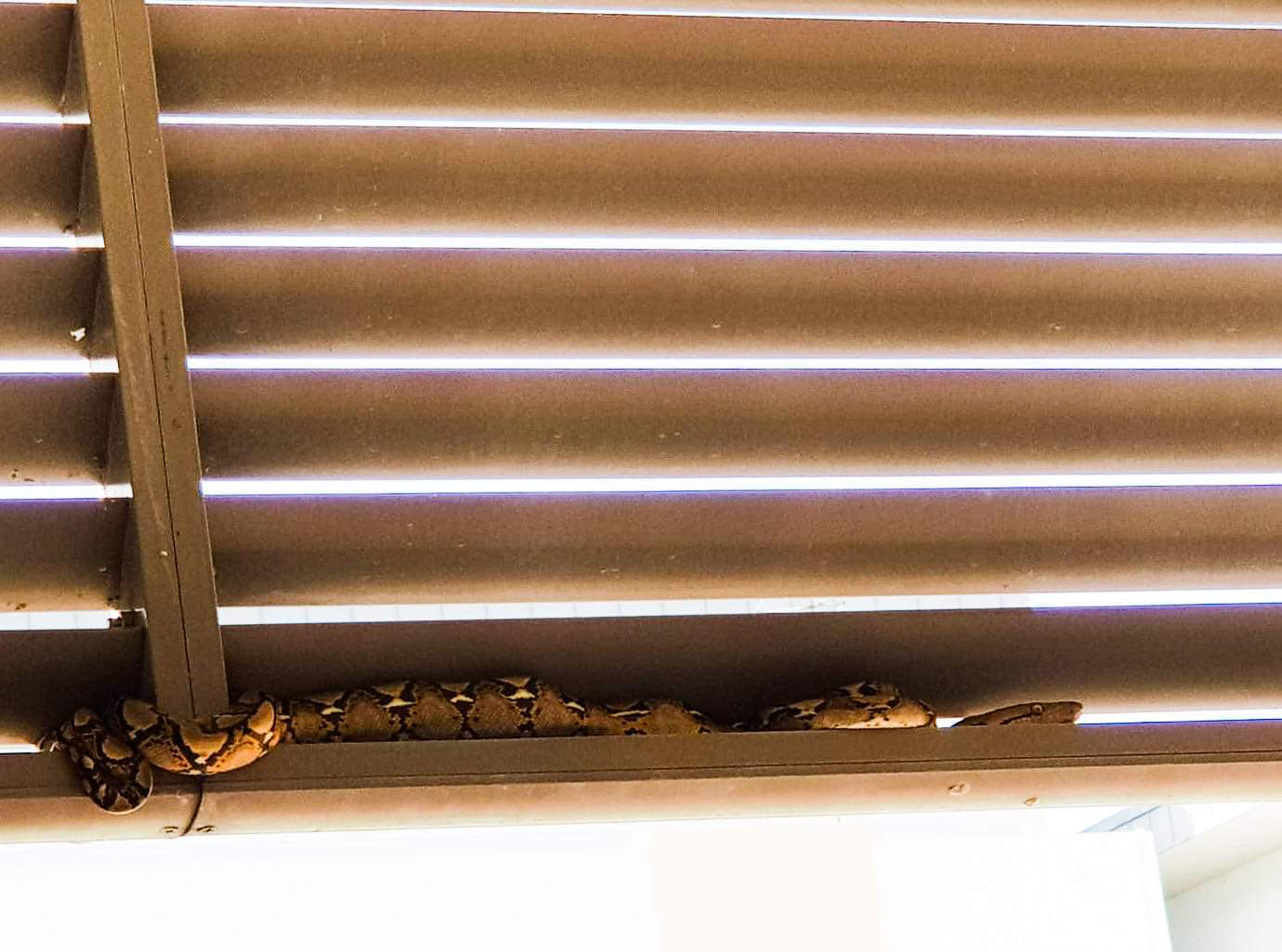 Photo by Jesscy Ang
Photo by Jesscy Ang
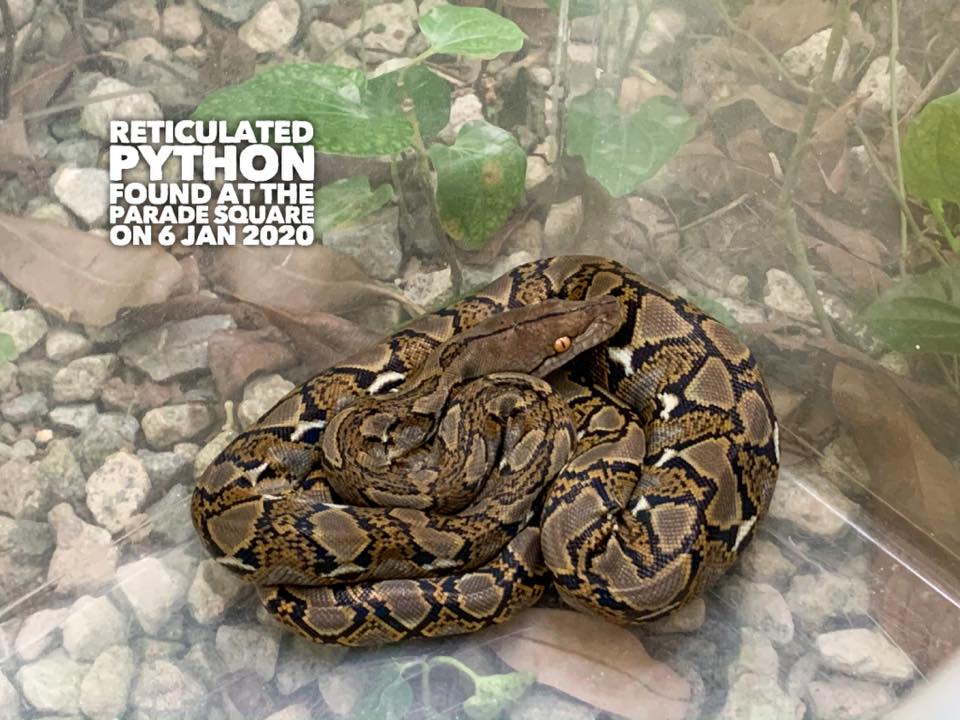 Photo via Tan Guan Rui Jacob/Facebook
Photo via Tan Guan Rui Jacob/Facebook
With the help of their school's operation manager, Tan said that the snake was carefully and safely moved off the metal shelter and into a trash bag.
Tan told Mothership that he has attended wildlife rescue training at ACRES in the past, and understands how to safely handle wildlife, such as snakes.
Used the situation as a learning lesson for his biology class
After transferring the snake to a clear plastic container with the help of a fellow teacher, he took the python to his biology lesson.
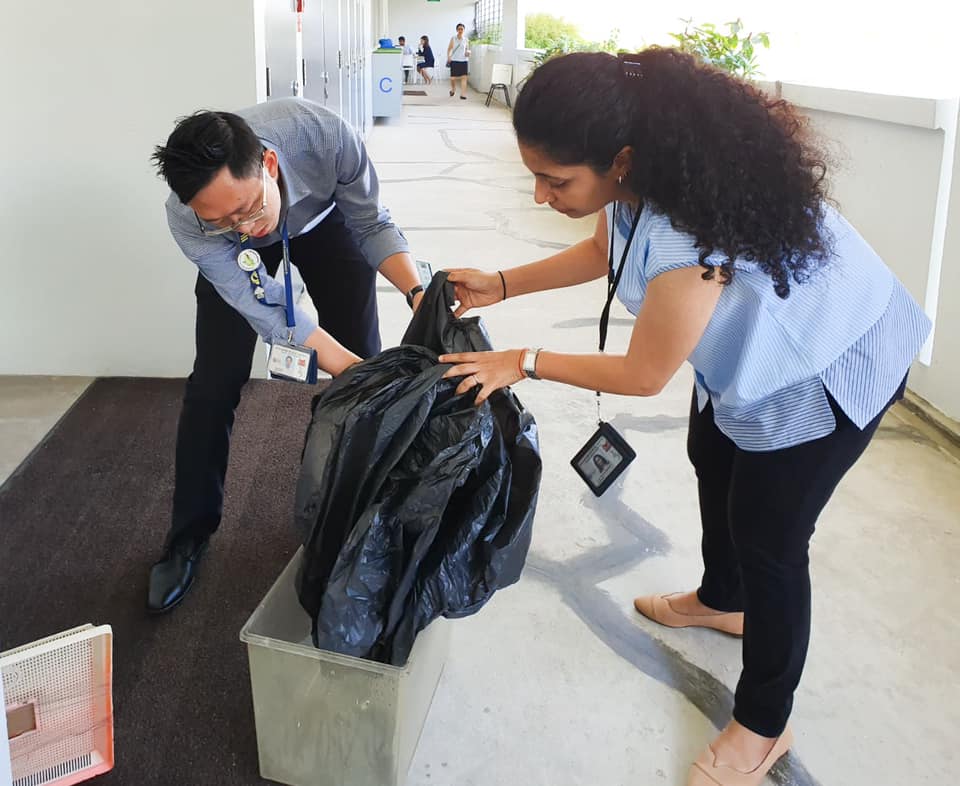 Photo via Tan Guan Rui Jacob/Facebook
Photo via Tan Guan Rui Jacob/Facebook
This, according to him, got his students very excited.
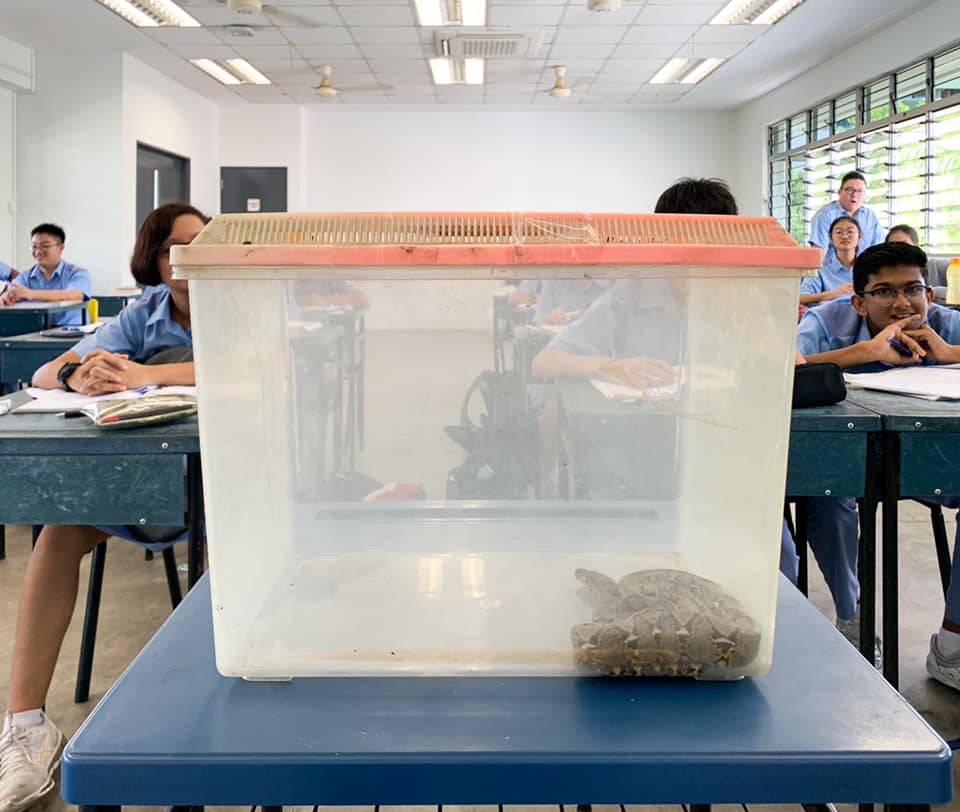 Photo via Tan Guan Rui Jacob/Facebook
Photo via Tan Guan Rui Jacob/Facebook
Tan took the chance to explain the "physiological changes in their body to the hormone adrenaline released from their adrenal glands into their bloodstream, causing their heartbeat and ventilation rate to increase".
Python was safely released back into the wild
Upon consultation with ACRES, Tan said the young python was eventually released back into the wild.
In his Facebook post, Tan also explained that we should "learn to coexist with wildlife".
"Killing or hurting any form of wildlife is also prohibited under Singapore law.
Pythons, being non-venomous constrictors, are the most common type of snakes found in Singapore, feeding on rats and other small animals - although some experts say they eat anything they can catch - and have no problems living in drains.
They are very effective natural predator for rats.
They are shy, and usually avoid human contact, though they are capable of turning aggressive if they feel threatened.
They don't move very fast, only about 1.6km per hour on open ground. But since they don’t have to chase their food, speed is not a necessity.
Let’s learn to coexist with the wildlife in our midst."
This is his full Facebook post on Jan. 6:
This is also not the first time the school has handled wildlife incidents.
Here's another snake rescue by his colleague in April 2019:
Cool.Top photo via Tan Guan Rui Jacob/Facebook
If you like what you read, follow us on Facebook, Instagram, Twitter and Telegram to get the latest updates.
